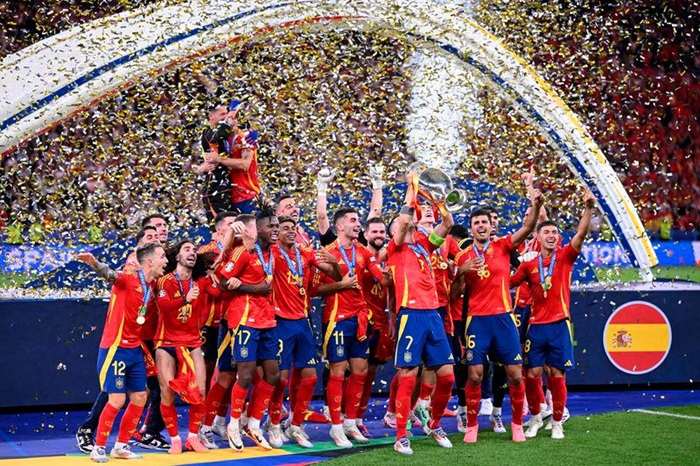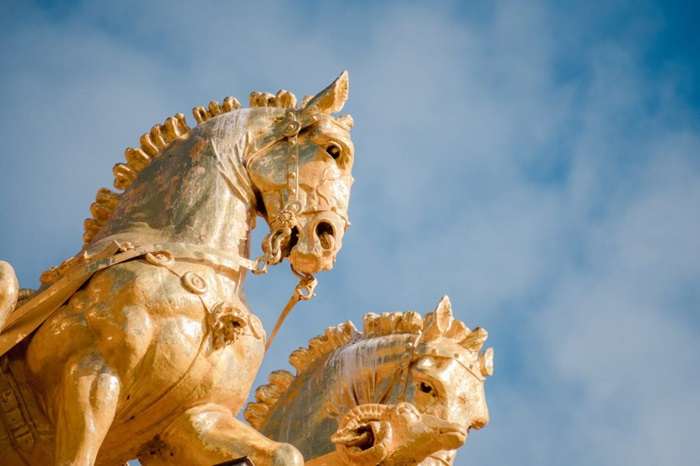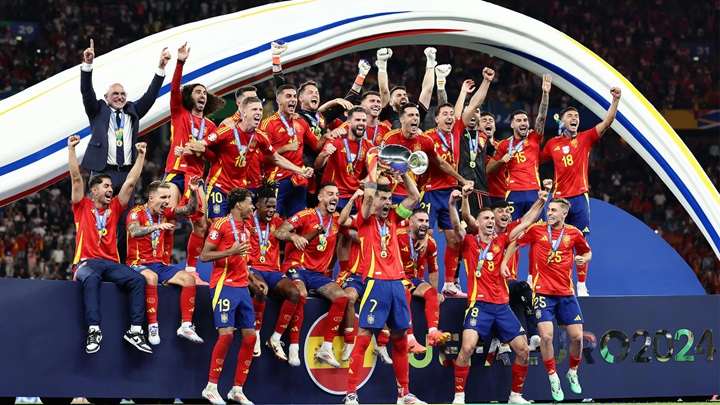Spain’s national football team, known as “La Roja,” has earned a reputation as one of the most successful football teams in history. With a blend of skill, tactical prowess, and passion, Spain has captivated football fans around the world. This article will take a deep dive into the journey of the Spain national football team, highlighting key moments, legendary games, rivalries, and the future of the team.
A Brief History of Spanish Football
Spain’s footballing journey began in the early 20th century, with the establishment of the national team in 1920. The team’s debut came at the 1920 Summer Olympics in Antwerp, where they won a silver medal. Since then, Spanish football has grown immensely, evolving into a formidable force on the global stage.
Early Struggles and Development (1920–1950s)
While the Spanish national team started with a promising Olympic performance, they struggled to establish themselves as a powerhouse in the early years. Their participation in the first-ever FIFA World Cup in 1930 was marred by internal strife, and they did not reach their full potential during the following decades.
The Spanish Civil War and World War II halted progress, but the 1950 FIFA World Cup in Brazil marked a turning point. Spain finished fourth, showing glimpses of the dominance that would come in the decades ahead.
Golden Era of Success: Spain’s Dominance in World and European Football

Spain experienced their golden era between 2008 and 2012, becoming the first national team to win three consecutive major international tournaments. This period saw a transformation in their playing style, characterized by the famous “tiki-taka” approach, a system of short, intricate passing and maintaining possession.
Euro 2008 Triumph
Spain entered Euro 2008 under new coach Luis Aragonés, with a talented squad featuring Xavi Hernández, Andrés Iniesta, Fernando Torres, and David Villa. Their blend of youth and experience clicked perfectly. Spain dominated the tournament with their attractive football, beating Russia, Italy, and Germany on their way to lifting the trophy.
The 1-0 victory against Germany in the final, courtesy of a Fernando Torres goal, marked Spain’s first major trophy since their European Championship win in 1964.
2010 FIFA World Cup Victory: The Pinnacle of Glory
Spain’s triumph in the 2010 FIFA World Cup in South Africa remains one of the most iconic moments in football history. Coached by Vicente del Bosque, Spain arrived at the tournament as favorites, with their stylish and disciplined play. The team’s journey to the final wasn’t easy—they lost their opening game to Switzerland but bounced back to win six consecutive matches.
Spain’s knockout stage performances were defined by narrow wins, but they showcased remarkable defensive strength and tactical discipline. In the final, Spain faced the Netherlands, and after a tense 120 minutes, Andrés Iniesta scored the decisive goal in extra time, securing a 1-0 victory and Spain’s first-ever World Cup.
Euro 2012: Continuing the Legacy
Spain continued their domination in Euro 2012 under Del Bosque, becoming the first team to win back-to-back European Championships. Their attacking flair and ball possession game were on full display throughout the tournament.
Spain cruised to the final, where they met Italy. In one of the most one-sided finals in European Championship history, Spain thrashed Italy 4-0, with goals from David Silva, Jordi Alba, Fernando Torres, and Juan Mata. It cemented Spain’s legacy as one of the greatest football teams ever.
Spain’s Iconic Matches: Memorable Games in Football History
Beyond their title-winning tournaments, Spain has been part of many unforgettable matches that have become part of football folklore.
Spain vs. Portugal (Euro 2012 Semi-final)
The Euro 2012 semi-final against Portugal was a tense, tactical battle that ended in a penalty shootout. After 120 minutes of goalless football, Spain emerged victorious, 4-2 in the shootout. Cesc Fàbregas’ decisive penalty sent Spain to the final and symbolized their mental toughness.
Spain vs. Netherlands (2010 World Cup Final)
The 2010 World Cup final was a fiercely contested match, remembered for its physicality and drama. The Netherlands tried to stifle Spain’s tiki-taka style with aggressive play, but Spain’s resolve and Iniesta’s 116th-minute winner ensured their place in history. The game has since become synonymous with Spain’s footballing prowess and a showcase of mental fortitude.
Spain vs. Italy (Euro 2008 Quarter-final)
Spain’s quarter-final clash against Italy in Euro 2008 was a pivotal moment. The match went to penalties after a 0-0 draw, and Spain’s ability to keep their nerve in the shootout signaled their rise to greatness. Iker Casillas’ heroics in goal and Fàbregas’ winning penalty sent Spain through to the semi-finals and was a key moment in their eventual tournament victory.
Spain’s Rivalries: Fierce Competitions on the Global Stage
Throughout their history, Spain has developed intense rivalries with several teams, both in Europe and worldwide. These rivalries often bring out the best in La Roja and are a testament to their competitive nature.
Spain vs. Italy
The rivalry between Spain and Italy is one of mutual respect but fierce competition. The teams have faced each other in multiple significant matches, with Spain often emerging as victors in recent years, including their victories in Euro 2008 and Euro 2012. Italy, known for their defensive football, has always posed a significant challenge to Spain’s fluid, attacking play.
Spain vs. Germany
Spain’s rivalry with Germany dates back to their early meetings in World Cup and European Championship matches. Both teams have enjoyed periods of dominance in world football, with Spain often getting the upper hand in recent tournaments. Spain’s victory over Germany in the Euro 2008 final is one of the standout moments in this rivalry.
Spain vs. Portugal
The Iberian Derby between Spain and Portugal is always a high-stakes encounter. These neighboring countries share a deep footballing rivalry, with matches often filled with drama. Spain’s semi-final victory over Portugal in Euro 2012 is one of the most memorable games in their shared history.
Spain’s Post-Golden Era: Rebuilding and Evolution

After their historic success between 2008 and 2012, Spain’s national team entered a period of rebuilding. As the golden generation aged and retired, the team struggled to replicate their past dominance. Spain’s early exit from the 2014 FIFA World Cup and their disappointing performance in Euro 2016 prompted a need for renewal.
2018 FIFA World Cup and Euro 2020
Spain’s 2018 World Cup campaign ended in the Round of 16, where they lost to hosts Russia in a penalty shootout. However, the team showed signs of recovery, with new players like Isco, Marco Asensio, and Koke stepping up.
In Euro 2020, Spain made it to the semi-finals, eventually losing to Italy on penalties. While they did not lift the trophy, the tournament marked a return to form, with young stars like Pedri and Ferran Torres making their mark.
The Emergence of Young Talent
Spain’s future looks promising with a new generation of talented players emerging. Pedri, Gavi, and Ansu Fati represent the new wave of Spanish footballers, and under the guidance of current coach Luis de la Fuente, Spain aims to return to the pinnacle of world football.
Spain National Football Team’s Tactics and Playing Style
Spain’s success has been built on a distinctive playing style, often referred to as “tiki-taka.” This system focuses on ball retention, quick passing, and fluid movement, making it difficult for opponents to gain possession. Pioneered by coaches like Luis Aragonés and Pep Guardiola (at the club level with Barcelona), tiki-taka became Spain’s hallmark during their golden era.
Evolution of Tiki-Taka
While tiki-taka was Spain’s defining style during their peak years, the team has since evolved. Under Vicente del Bosque, Spain retained the tiki-taka philosophy but incorporated more direct play. In recent years, Spain has adopted a more balanced approach, blending possession-based football with quicker transitions and vertical passes.
Key Players in Spain’s Football History
Spain’s rich football history has been shaped by a long list of legendary players. These players have left an indelible mark on both Spanish and world football.
Andrés Iniesta
Iniesta is perhaps the most iconic player in Spain’s history. His vision, passing, and ability to control the tempo of a game made him the engine of Spain’s midfield during their golden era. His winning goal in the 2010 World Cup final immortalized him in football history.
Iker Casillas
As one of the best goalkeepers of his generation, Iker Casillas was a rock in goal for Spain. His leadership and shot-stopping ability played a pivotal role in Spain’s Euro 2008, 2010 World Cup, and Euro 2012 triumphs.
Xavi Hernández
Xavi’s technical brilliance and footballing intelligence made him a key figure in Spain’s tiki-taka system. He was instrumental in Spain’s control of possession and their ability to dictate games. His partnership with Iniesta is considered one of the greatest midfield duos in history.
Related Post:
Big Brother Reindeer Games: A Winter Wonderland of Competition
2 Player Games Unblocked: The Ultimate Guide to Fun and Friendly Competition
OVO Cool Math Games: A Complete Guide to Mastering the Game
The Future of Spain National Football Team
Spain’s future looks bright as a new generation of players emerges. The team has shifted from their golden era but continues to evolve tactically and competitively. With promising young stars and a focus on attacking football, La Roja is poised to reclaim their place among the world’s elite teams.


